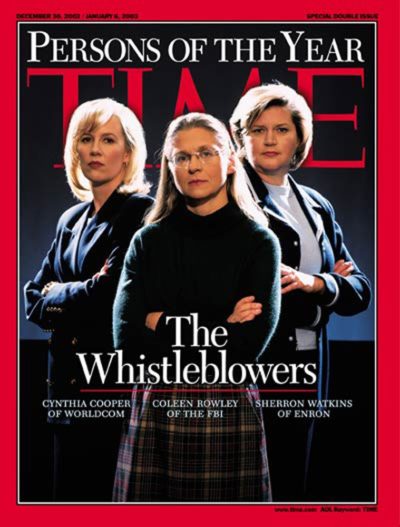Whistleblowers play an important role in divulging ethical breaches, but we must reframe their role in order to preserve the ethical imperative in organizations.
Unethical behavior is rampant nowadays. We see it across the board. We see it in business (e.g., Walmart bribery scandal, LIBOR scandal, Peregrine scandal, and many more); in universities (Harvard, Penn State, and more); in nonprofits (Boy Scouts, Three Cups of Tea, United Way, and more); and in sports.
Many governments have passed whistleblowing statutes but usually through a patchwork of laws that sometimes conflict. Even worse, the whistleblower is often viewed as a traitor in the organization—and sometimes subject to retaliation.
What’s more, there is a stigma here. Think about “tattletales,” for example—a real putdown on the playground. People often denigrate “snitches” or “informants.”
The negative disposition towards whistleblowers needs to change. But we also need to reframe whistleblowing as one among many acts of stewardship in an organization.
Stewards of Shared Values
“Leadership is all about trusteeship.”
-Dr. Manu Kulkarni, Siddaganga Institute of Technology, India
In our book, Triple Crown Leadership, we outline five practices that leaders can employ to build excellent, ethical, and enduring organizations (whether companies, nonprofits, or government agencies). The practices include recruiting and promoting for character (not just competence), establishing strong shared values to guide behavior, and unleashing “stewards” throughout the organization to establish and protect a “culture of character.”
These stewards—who can be anybody in an enterprise, from board members and senior executives to people without authority—help organizations self-regulate. In triple crown organizations, stewards have an irrevocable license to act, as long as they operate by the shared values.
How do stewards establish and protect a culture of character?
Stewards step up and lead, even when they don’t have formal authority. They work on the business, not just in it. They help draft the shared values and base decisions on those values. Stewards refuse to violate their personal values or the organization’s values. They refuse to engage in unethical or unsustainable behavior.
Stewards coach their colleagues and celebrate ethical behavior. When they observe unethical behavior, they speak up constructively and privately to the offending party. They gain allies to reinforce their stewardship. If the improper behavior continues, they report the incident to higher authorities (for example, their manager, a compliance officer, legal counsel, the CEO, or a board member).
If all else fails, as a last resort, they leave the organization and report the offenses to outside legal authorities as a formal whistleblower.
Failing to leave an unethical organization that will not change gives tacit approval to the behavior. Staying put becomes a de facto endorsement. A senior exec at a major telecom company recently told us, “I either change this behavior in my organization, or acknowledge that I endorse it.”
“He that lieth down with dogs shall rise up with fleas.”
-Benjamin Franklin
We need regulations and whistleblowers, but perhaps most of all we need stewards who stand as sentries for the organization’s values and culture of character.
Are you a steward in your organization?

Leadership Derailers Assessment
Take this assessment to identify what’s inhibiting your leadership effectiveness. It will help you develop self-awareness and identify ways to improve your leadership.
Tools for You
- Leadership Derailers Assessment to help you identify what’s inhibiting your leadership effectiveness
- Personal Values Exercise to help you determine and clarify what’s most important to you
- Alignment Scorecard to help you assess your organization’s level of alignment
Related Articles
- “Are You Strong Enough to Be a Voice of One?“
- “Leadership and the Ethics Imperative“
- “3 Things Ethical Leaders Ask and Say“

Triple Crown Leadership Newsletter
Join our community. Sign up now and get our monthly inspirations (new articles, announcements, opportunities, resources, and more). Welcome!
+++++++++++++++++++++++
Gregg Vanourek and Bob Vanourek are leadership practitioners, teachers, and award-winning authors (and son and father). They are co-authors of Triple Crown Leadership: Building Excellent, Ethical, and Enduring Organizations, a winner of the International Book Awards. Check out their Leadership Derailers Assessment or get their monthly newsletter. If you found value in this, please forward it to a friend. Every little bit helps!

